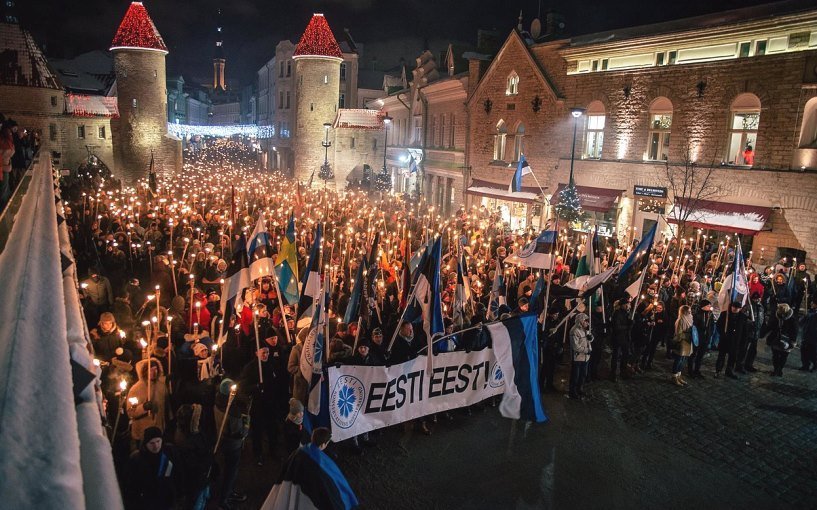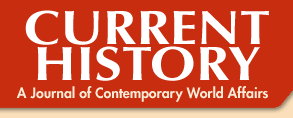(PONARS Eurasia Policy Memo) Current political developments in Estonia are primarily shaped by the highly controversial and divisive effects of its March 2019 parliamentary election. For the first time, the right-wing EKRE Party (Konservatiivne Rahvaerakond) is participating in a government coalition. It received 18 percent of the vote but one-third of the ministerial portfolios because two other parties—the Center Party (Keskerakond) with 23 percent and Pro Patria (Isamaa) with 11 percent—admitted it as a coalition partner. The center-right Reform Party (Reformierakond) found itself in opposition with 29 percent of the vote. Especially controversial was EKRE’s acceptance by the Center Party, which for over two decades had been building a reputation as a major voice and representative of Estonia’s Russophone community. Given EKRE’s systemic anti-Russian pronouncements, its league with the Center Party is puzzling. Based on divergent attitudes, minority members within the Center Party are contesting EKRE being a coalition partner, driving the Center Party toward a probable internal split.
EKRE features as the most obvious embodiment of national populism, but populist discourses also encompass the Center Party, which, until recently, had earned the reputation as a pragmatic and opportunist power broker rather than a normative voice calling for integration across Estonian society. Russophone residents and citizens are now wedged between two populist parties, EKRE and Center, with neither providing an assured platform for them. It appears that EKRE’s accession into the government shrinks further the political base for Moscow in Estonia.
Explaining EKRE’s Success
The dominant explanation of EKRE’s ascendance to power comes from institutional politics. From this perspective, it would be fair to argue that around 2011, Estonia lost its major rural party, the People’s Union, through a series of political corruption scandals that left a fairly sizeable part of a rather conservative electorate (15 to 20 percent) without much representation. EKRE skillfully exploited this vacuum and offered lower taxes, increased government spending, anti-immigrant rhetoric, pro-family traditionalism, and EU-skeptical policies. Estonian president Kersti Kaljulaid added to the economic reverberations, claiming that “reforms have created a feeling among people in rural areas that life and developments pass them by.”
In the meantime, the EKRE phenomenon may have cultural and ideological explanations. This party has been positioning itself as part of the “cultural wars” in Europe, referring to “cultural Marxists” along with liberals as the party’s main adversaries. Indeed, as Kristi Raik, director of the Estonian Foreign Policy Institute, said, “EKRE’s popularity gained a significant boost from the recognition of same-sex unions in 2014 and the outbreak of the migration crisis in Europe in 2015,” which clearly points to issues of cultural identity.
On a more general note, EKRE’s progression might be explicated by what Bulgarian political scientist Ivan Krastev has cogently referred to as “the divorce between liberalism and nationalism in the late 1990s.” In Central Europe and the Baltic states, these two political forces jointly fought Communism, and in Estonia they managed not only to co-exist, but to form a hegemonic alliance. Yet in the latest parliamentary election, Estonia experienced what happened earlier in other countries—an illiberal nationalism detached from the liberal one: in today’s Estonian politics, one can be a nationalist without embracing any liberal values, and a liberal beyond straightforward nationalist rhetoric.
In the process of this divorce, EKRE, in fact, did not invent anything anew—it simply deployed in an ostensibly illiberal context the ethno-nationalist and language-centric ideas that were always part of Estonia’s political discourse. For example, there is little difference between EKRE’s anti-immigration philippics and the explicitly anti-refugee, Islamophobic, and EU-skeptical speeches by former Foreign Minister Kristina Ojuland (formerly known as a liberal).
Another cultural issue is the low level of religiosity in Estonia, which makes EKRE’s appeals to Christianity quite limited, since in vernacular discourses as well as in Estonian culture in general, Christianity is often associated with the historical domination of European colonial powers over this country. EKRE’ strategies (in particular, some of its new MPs such as Ruuben Kaalep) had thus been to include in its political arsenal direct or indirect references to the neo-paganist mystique that in the view of many observers is on the rise in a number of countries.
Blue Awakening, a conservative youth activist group affiliated with EKRE, has contributed to the promotion of Finno-Ugrian supremacist ideology coupled with a peculiar type of Estonian traditionalism, which includes veneration of ancient/pre-Christian beliefs and rituals, and some sort of symbolic detachment of “the real, pristine Estonia” from the European cultural and political mainstream. It is at this point that a bunch of self-victimized Estonian post-colonial narratives and imageries gave a strong boost to right-wing populism.
More Than One Populism
The “divorce” between liberals and nationalists gave birth to two different types of populism. Apart from EKRE, the Center Party has exposed itself as a group of populists who treat Russophone votes more as an electoral resource than as a matter of norms, values, or principles. One of the most pro-Russian politicians in Estonia, Yana Toom, who promised to quit the Center Party should it agree to a coalition government with EKRE, ultimately changed her mind and decided to stay, thereby sharing responsibility for the coalition. Against this backdrop, some Center Party members did recognize that a de-facto partnership with EKRE is a strong blow to their public standing that might not ultimately be rectified. Nowadays, it is the Center Party’s Russophone voters who are very likely to feel betrayed by their party leadership’s toxic mixture of populism and pragmatism.
The genealogy of the Center Party’s populism dates back to the 1990s and has much to do with the political legacy of its former leader, Edgar Savisaar. In a recently published book[1] by two Estonian investigative journalists, he is described as a cynical policy entrepreneur who in the beginning of the 1990s “was considered as the worst enemy of Russians living in Narva and Ida-Virumaa,” but then started moving in a pro-Russian direction due to intense contacts with business people and local politicians close to the Kremlin. He ended up signing an agreement in 2004 with Russia’s United Russia party and campaigning on a pro-integration/anti-discrimination ticket that appealed to Estonian Russophones (he also materially supported the Russian Cultural Center in Tallinn in 2004).
Yet, these days, the Center Party’s erstwhile public agenda of integration has been put under question by the coalition government. With the political integrity of the Center Party being seriously damaged, and the “old” slogans of integration being questioned, a new cycle of debate around the Russophone community is likely to develop against the backdrop of its further alienation from the Estonian political system.
As a result of what the Russophone media dubbed betrayal, the Center Party’s approval rating among Russian speakers in a matter of only a few months fell from about 70 percent to less than 40 percent. Indicatively, at a certain point, EKRE seemed to come second in the sympathies of Russophone Estonians. It looks like EKRE became more popular among Russian speakers after having made multiple curtsies towards them, along the lines of, for instance: “That’s something we have in common with Russians—they’re Orthodox, they don’t want Muslims for neighbors [either],” as EKRE MP Jaak Madison said.
Some of EKRE’s (so far mostly symbolic) moves might be considered as harmonious with President Vladimir Putin’s strategies. Two illustrative examples are (pro-Kremlin) Marine Le Pen’s visit to Tallinn in June 2019 that sparked speculations about a possible drift of EKRE toward Russia, and EKRE leader and Interior Minister Mart Helme’s declaration of his ministry’s intention to revoke EU-approved visa-free travel for Ukrainians.
These “accent” changes put the Russian media machine in a rather awkward situation. At the outset, EKRE was covered in the Kremlin-controlled media as a neo-fascist party inherently inimical to Russian speakers. Analysis of Russian media stories about Estonia in the context of the 2019 parliamentary campaign shows clear sympathies to the Center Party and antipathies to EKRE during this period. Yet this binary picture became more multifarious with the EKRE–Center Party governmental alliance, and the loss of the latter’s position among pro-Kremlin Russophone voters. Since the Center Party is losing its grip on its traditional electorate, Moscow needs to somehow alter its own earlier strategy. Indicatively, the Kremlin-controlled “Sputnik–Estonia” portal has significantly reconfigured its negative editorial coverage of EKRE, having moved from direct accusations of neo-fascism to favorable reporting, such as about the anti-EU lamentations made by EKRE members, or Helme’s disdain of the country’s “singing-revolution” legacy.
Notwithstanding, Russia’s Ambassador to Estonia has dubbed Helme a “useless idiot,” which basically means that Russia seems to gain close to nothing from the recent political perturbations. EKRE’s accession into the government shrinks even further the political base for Moscow in Estonia, only amplifying traditional Moscow-propagated cries about Russian-speakers as the main losers in recent changes in Estonian politics. As the visit of President Kaljulaid to Moscow not long ago suggests, Moscow is more likely to keep its communication track with Tallinn with the help of the pragmatic part of the elite than through capitalizing on the populist wave.
Conclusions
The Estonian case clearly demonstrates the limits of the technocratic approach to the rise of right-wing populism. Initially, a significant part of the Estonian establishment, including Kaljulaid, approached EKRE’s deeply political challenge to Estonian (as well as European) democracy from predominantly legalistic and depoliticized positions. However, the political nature of the change in the government seems obvious: EKRE’s ascendance to power is a result of the transformation of Estonian liberal nationalism into illiberal forms that are supported by a significant part of Estonian society. Both forms of nationalism are in opposition to the civic understanding of political community with which most of the Russophones living in Estonia would sympathize.
The 2019 parliamentary election and the ensuing governmental coalition highlighted a growing gap between local Russian speakers and the changing Estonian political mainstream. Being stuck in the Moscow-supported post-Bronze-Soldier narrative of marginalization,[2] the Russophone minority has proven so far incapable of producing and promoting its own narratives to address the rise of national populism and the damage it has done to Estonia’s reputation in the EU, attempts to re-consolidate the Estonian liberal community, and the instability inherent to the tripartite government and its future prospects. Having no strong voice in Estonian politics, the socially and culturally dispersed Russian groups have very few chances for enhancing their subjectivity and, over the long run, are likely to further turn away from the Center Party as well from the increasingly volatile Estonian political scene at large.
Andrey Makarychev is Visiting Professor in the Johan Skytte Institute of Political Studies at the University of Tartu, Estonia.
[PDF]
[1] Kalle Muuli and Tiit Pruuli, V teni Savisaara, Tallinn: Go Group Publishers, 2016, p. 180.
[2] The Russophone community, to a large extend, marginalizes itself by distancing from the Estonian political mainstream, and Kremlin propaganda, to a large extend, works in the same direction.
Memo #: 616
Series: 2











